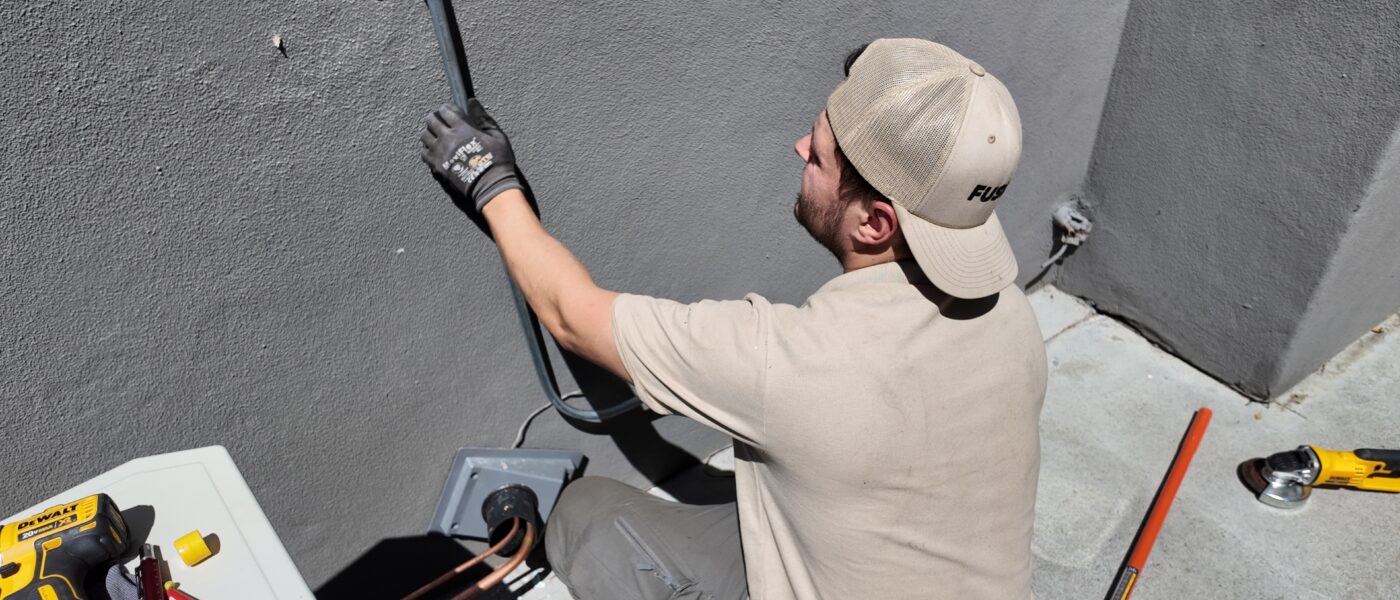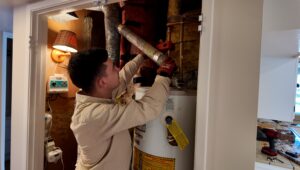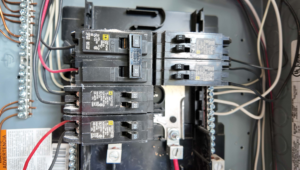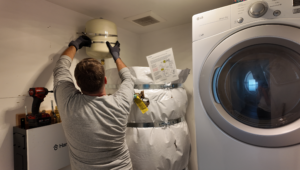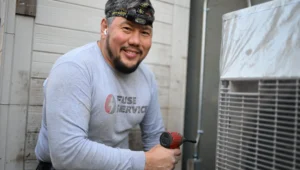When you turn on the AC on a hot day, the coolness seems to appear instantly. You just turn on a button and the room gets cool. But there’s a sophisticated setup behind it. The compressor triggers the cooling process. Many customers wonder: what does an AC compressor do? Well, we’ll answer this and many other questions in this article.
What Is an AC Compressor and Why It Matters in Cooling Systems
Technicians often say the compressor is the AC brain. Or the heart, whichever you like more. It compresses and moves refrigerant through the circuit.
So, basically, it uses high pressure to cool the air and starts the movement of refrigerant that keeps your home cool.
How Does an AC Compressor Work
What does the AC compressor do? First, it compresses gas refrigerant. Second, it transfers gas to the condenser to heat it up under pressure. Heat escapes outside and cooled air enters the room. Then, the cycle repeats again. And again, and again…
So, what is the compressor on an AC unit? Here’s a basic definition: it’s the element that triggers the whole heat transfer cycle.
What Does the Compressor Do in an Air Conditioner System?
The easiest way to understand the AC compressor purpose is to look at its function chart:
| Function | What It Means |
Circulates refrigerant | Refrigerant movement through the system |
Increases pressure | Gas compression to increase the heat |
Enables heat transfer | Heat transfer from the room to the outside |
| Starts cooling cycle | Triggers the air-conditioning process |
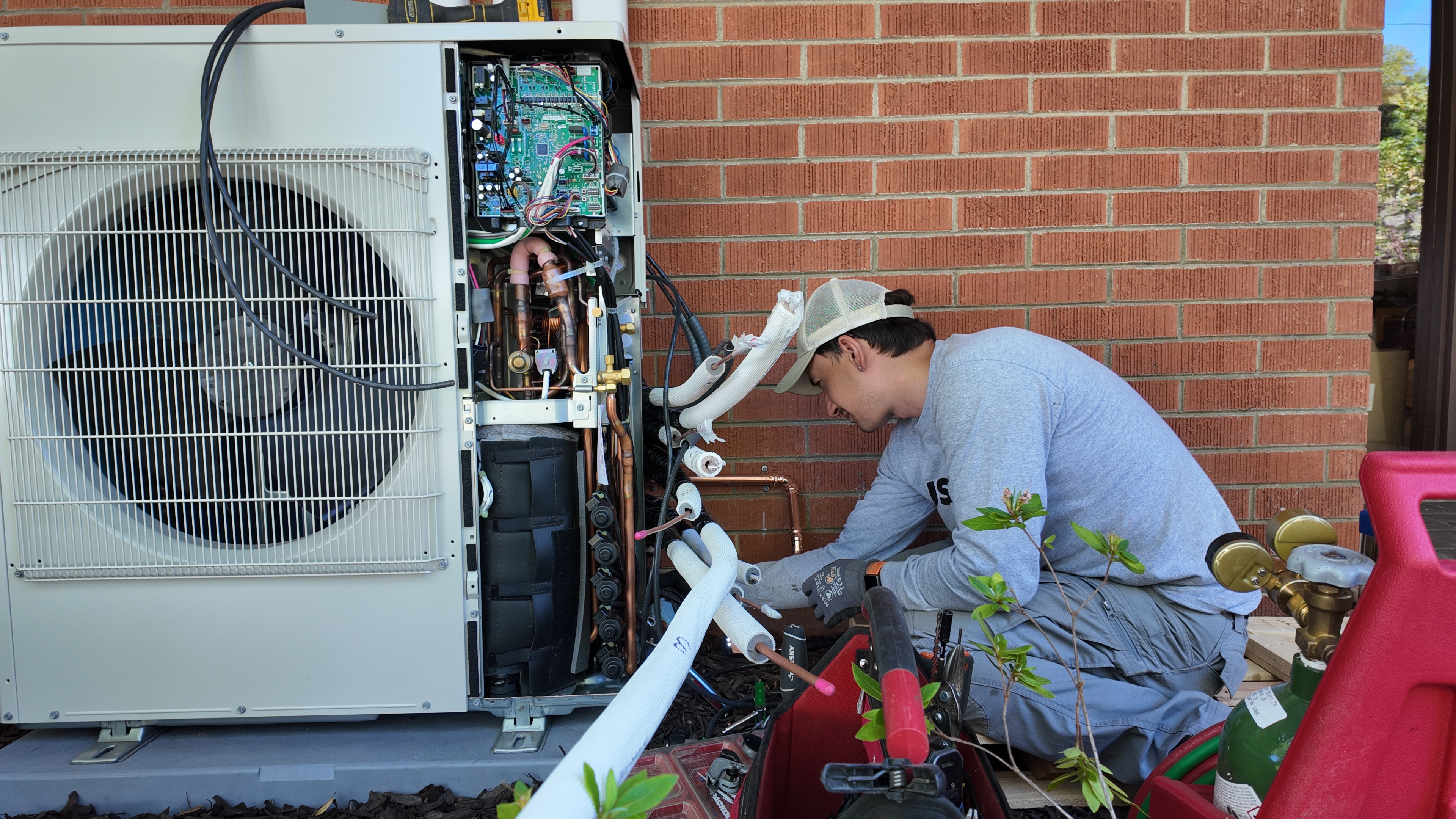
What Happens When the AC Compressor Fails?
Imagine that your compressor fails. But… wait a minute. It’s hard to imagine it if you don’t know the signs! So, what gives away a failing compressor?
- The AC blows warm air.
- You can hear unusual noises (like grinding or humming).
- Smell of burning odor from the unit.
Wikipedia says that compressors make AC failures happen more often than any other component. If you see these symptoms, book an AC repair in San Jose.
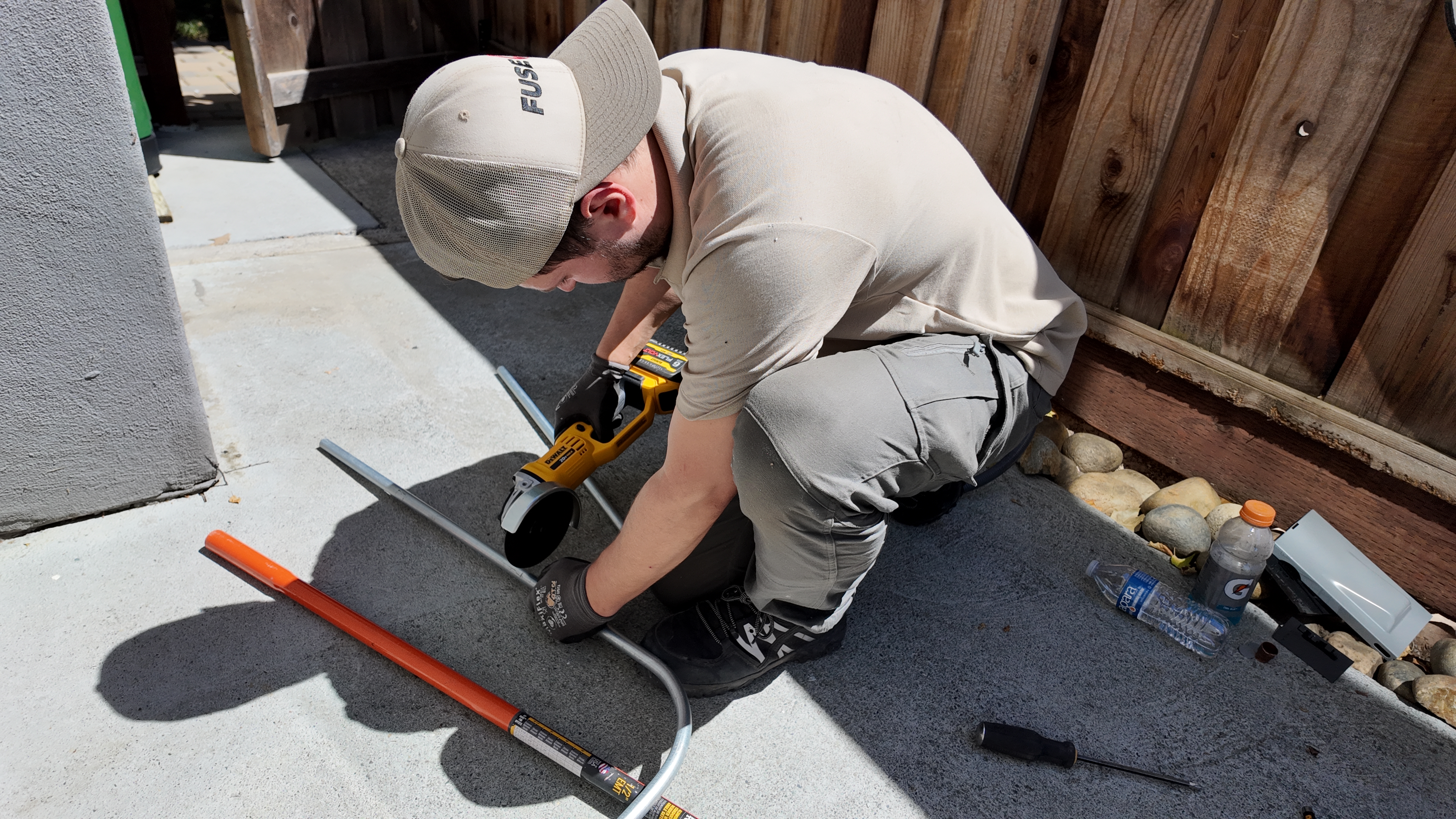
How Long Does an AC Compressor Last?
Like our heart (because that’s its role in AC!), many factors may affect it easily.
If you need an average, we would say that a compressor lives up to 15 years. But a lot depends on care and quality of installation. It also affects how long do HVAC systems last in general—typically up to 20 years with regular maintenance.
Replacing the Compressor—Cost vs. Whole-Unit Upgrade
Removing a compressor and putting a new one in is quite an expensive procedure. Sometimes it’s more reasonable to replace the entire unit, especially if the system is old and lets you down from time to time.
Forbes experts note that full replacement can sometimes be a good solution, especially in the long run. So if you’re thinking of buying a new system, check out AC replacement in San Jose from the experts at Fuse Service. We are EPA-certified professionals and have been installing the best systems for almost 10 years.
What Fuse Service Technicians Recommend
Our Fuse Service, CA technicians are here to help you with more than just advice.
“If you don’t like repairs, call a professional more often than once in a life. It seems like a waste of money, but this is the only way to save it. It’s easier to check and spot a small problem in time than it is to fix a big one later.”
— Ben, a certified HVAC technician with Fuse Service.
A plan for a good homeowner: call Fuse Service to maintain your system at least once a year and change filters on time.
